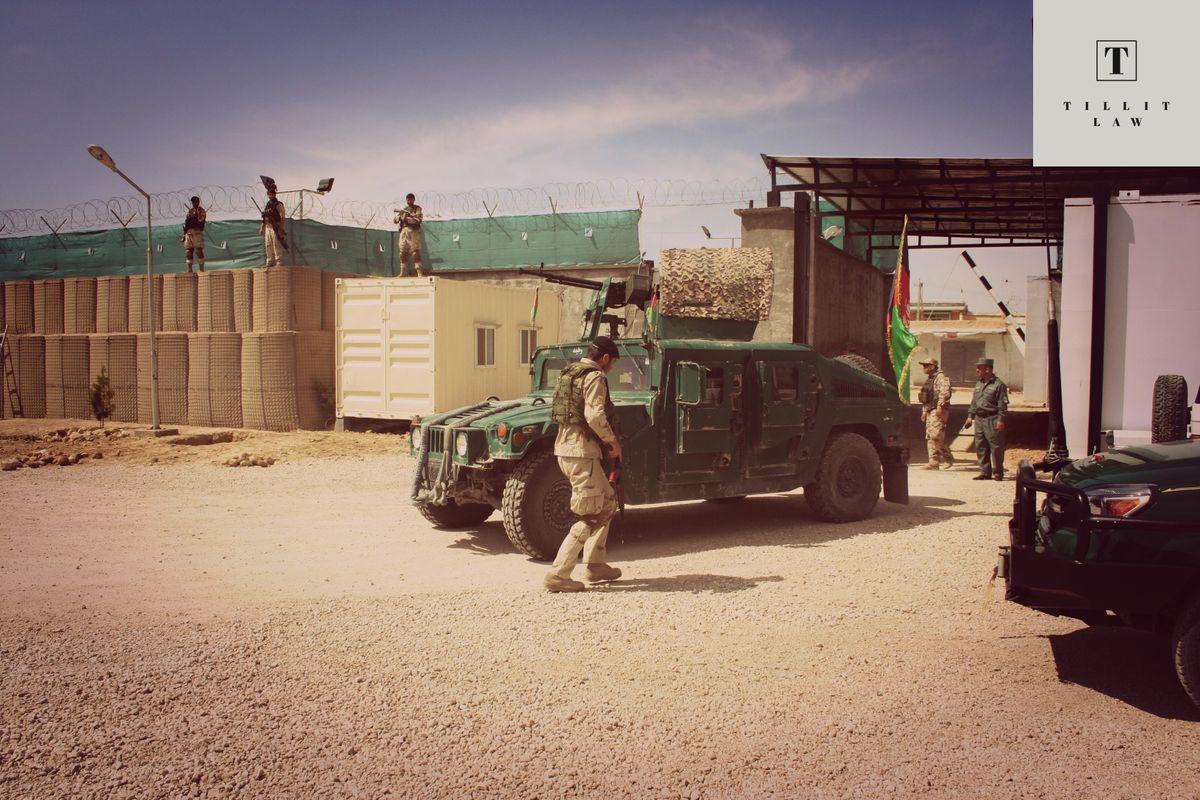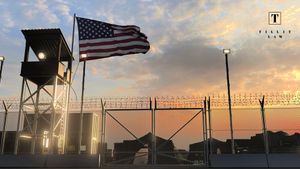In the performance of government contracts, there are instances where the government does not breach any specific terms or conditions of the contract but is nevertheless responsible for the contractor’s damages due to the fault or negligence of government officials. If the government personnel’s negligence or fault occurs in the administration of the contract, the government may be liable for breach of contract. In such situations, the contractor must prove its breach of contract claim by showing that the government had an obligation or duty arising out of the contract and that the government was in breach of this contractual obligation. Additionally, the contractor asserting the breach of contract claim due to the government’s fault or negligence in administration must also establish that the damages it claims were reasonably foreseeable at the time of contract award. Finally, the contractor’s damages must also be the natural and proximate result of the government’s breach. Notably, while the contractor may recover damages resulting from the natural and probable consequences of the government’s breach, damages that are too remote or attenuated from the breach are typically not recoverable.
On April 22, 2024, the Armed Services Board of Contract Appeals (ASBCA) granted the government’s summary judgment motion in a claim related to the U.S. withdrawal from Afghanistan. In ASBCA No. 63414, the contractor’s claim was for damages caused due to left-behind contractor equipment that was seized by the Taliban after its takeover of Afghanistan. However, the breach of contract action was unsuccessful in surviving the government’s motion for summary judgment due to the contractor’s failure to allege that the damages it suffered due to the government’s alleged faulty or negligent contract administration were foreseeable at the time of contract formation. The underlying firm fixed price (FFP) contract was issued by the U.S. Army Corps of Engineers (USACE) for the design and construction of Afghan National Army (ANA) and Afghan Air Force (AAF) aviation enhancements for the Mazar-e-Sharif airport. The construction project involved a life support area expansion and a mixed-use airfield, among other aviation enhancement facilities and utilities. Importantly, the contract at issue contained a War Risks clause, warning the contractor that contract performance may require work in “dangerous or austere conditions” and making it clear that the contractor assumed the risks associated with performance in such conditions. The contract also made the contractor specifically responsible for the security of its equipment and the demobilization of its personnel and equipment from the area of performance.
The contractor was verbally informed on August 8, 2021, that no further concrete pavement work would be performed on the taxiway. On August 14, 2021, the contractor was directed to evacuate the project site in response to the Taliban takeover, and a suspension of work order was issued by USACE on August 16, 2021. During the evacuation, the contractor was unable to remove the paving equipment from the work site, which had remained on the base for a potential reconstruction of a taxiway and an armed aircraft apron. According to the contractor’s statements, it would have taken five days to remove the concrete equipment and vehicles and approximately fourteen (14) days to disassemble the concrete batch plant and remove it from the site. The contractor alleged that it did not remove the paving equipment from the site because it was still waiting for the government’s direction, which did not come in time for the evacuation. Additionally, the contractor had needed a connection to a commercial power source to provide electrical power to the project site. However, it was discovered during contract performance that the power hookup location did not have sufficient capacity to power the project. As a temporary solution, the contractor provided generators at the project site at the request of the government. The generators were also left behind during the evacuation.
The contractor initially submitted a claim for a little over $2 million for losses suffered on account of its inability to recover equipment and other materials due to the government’s alleged untimely and improper decision-making in the administration of the contract. This portion of the claim for the cost of lost equipment and materials was later reduced to approximately $1.5 million, certified, and submitted to the contracting officer (CO) for a final decision on May 7, 2022. The CO issued a final decision on July 11, 2022, and denied the unrecoverable equipment portion of the claim in its entirety. In its complaint appealing the CO’s final decision at the ASBCA, the contractor alleged that the government’s failure to make timely decisions or take contractual actions concerning the taxiway pavement project and the electrical tie-ins caused the contractor delay in demobilizing its associated equipment and material from the site. The contractor maintained that it had repeatedly informed the government in weekly meetings that areas of Afghanistan and border crossings were being controlled by Taliban forces for more than a month before the Taliban takeover. Taliban’s control of the border crossings meant that materials and supplies were being stopped at the borders, which affected their delivery to the job site. Consequently, the contractor alleged that during the first two weeks of August 2021, the government could and reasonably should have foreseen the Taliban’s takeover of key provincial capitals and military installations. Finally, the contractor claimed that while it did not raise the government’s breach of any specific contract provisions or requirements in its appeal, it had nevertheless stated a claim upon which relief could be granted by setting forth allegations of fault and negligence by the government in the overall administration of the contract.
In response, the government argued that the contractor failed to state a claim upon which relief could be granted as it failed to point to any specific contract provisions that expressly limited the time the government had to decide project issues. Similarly, as previously mentioned, the contractor had also failed to point to a single contract provision or requirement that the government breached. Furthermore, the government argued that it was not liable for acts of the Taliban as a third party absent a showing of fault, negligence, or unmistakable agreement, especially when intervening acts of the third party break the causal chain between the government’s alleged misconduct and the contractor’s damages. Finally, the government took the position that it was not responsible for the loss of the contractor’s equipment because the contractor’s loss caused due to third-party actions was not reasonably foreseeable at the time of contract formation. Notably, in responding to the government’s motions, the contractor failed to address the government’s assertions that the damages resulting from the government’s alleged breach were not foreseeable at the time of contract award.
In deciding the government’s motion for summary judgment, the ASBCA began its analysis by pointing out the well-established rule that the U.S. government is not responsible for the sovereign acts of a foreign nation. The ASBCA clarified that in cases where the contractor alleges fault or negligence by the government in the administration of a contract, the contractor can defeat the government’s motion for summary judgment if it can place at issue at least one fact relevant to the inquiry of whether the government’s actions amounted to fault or negligence. In this case, the contractor blamed the government’s faulty or negligent administration of the contract as the reason for its loss of equipment. Specifically, the government’s failure to provide timely directions for repairs and its inability to provide the agreed-upon power source were cited as reasons for the contractor’s equipment not being demobilized earlier and the loss of on-site generators. However, while the contractor did allege that its damages were foreseeable in the weeks leading up to the withdrawal – it had failed to allege that its sustained damages were reasonably foreseeable at the time of contract award in the event of the government’s alleged breach. The ASBCA also pointed to the contract’s War Risks clause in clarifying that the loss of the contractor’s equipment and materials was a risk accepted by the contractor at the time of contract formation.
Notably, the ASBCA recognized that the foreseeability element presented a question of fact in this case. Therefore, had the foreseeability of damages at the time of contract formation been properly raised by the contractor as being in dispute, it would have likely precluded a summary judgment decision in favor of the government. However, since the contractor failed to present any evidence or even allege that it was foreseeable at the time of contract award that the government’s breach of its duties in contract administration would result in the Taliban seizing the appellant’s equipment, machinery, and power generators – the contractor’s appeal had to fail. In rendering summary judgment for the government on the issue of foreseeability, the ASBCA reminded the contractor that to defeat the government’s motion for summary judgment, the contractor, as the non-moving party, must not fail to make a sufficient showing on an essential element of its case with respect to which it has the burden of proof. Such a failure by the contractor at this stage renders all other facts immaterial and entitles the government to summary judgment.
While the contractor was unsuccessful in its appeal, ASBCA No. 63414 offers contractors in a similar position valuable insight into adjudicative forums’ potential treatment of breach of contract actions due to the government’s faulty or negligent administration of contracts in the weeks and months leading up to the U.S. withdrawal in Afghanistan. Here, the government ultimately prevailed on its motion for summary judgment because the contractor failed to allege the element of foreseeability at contract formation in its complaint or later responses to the government’s motions. Furthermore, as highlighted by the ASBCA, the contract’s War Risks clause also presented a problem for the contractor in this appeal. While pointing to the inclusion of the War Risks clause would have provided support for any potential arguments regarding the foreseeability of damages at the time of contract award – pointing to the clause could also hurt the contractor’s chances of recovery as the clause put risks associated with contract performance in “dangerous or austere conditions” squarely on the contractor. Also problematic was the express language in the contract that made the contractor responsible for the security and demobilization of its equipment from the performance site. Nevertheless, pointing to the inclusion of the clause would have likely been sufficient to defeat the government’s motion for summary judgment. However, it remains to be seen, and indeed will be interesting to follow, how adjudicative forums may treat contractors in similar situations without a War Risks clause in their Afghanistan contracts.
This Federal Contract Claims Insight is provided as a general summary of the applicable law in the practice area and does not constitute legal advice. Contractors wishing to learn more are encouraged to consult the TILLIT LAW PLLC Client Portal or Contact Us to determine how the law would apply in a specific situation.





